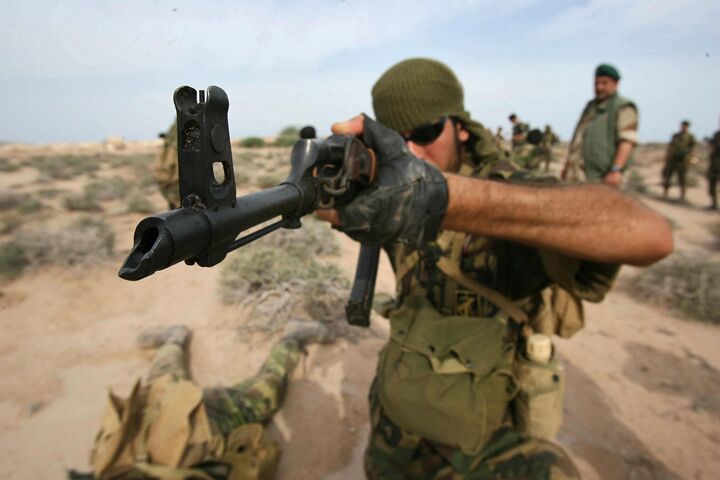
Revolutionary Guard Is an Economic Powerhouse
Iran’s independent military force has become “one of the most significant political and economic powers in the Islamic Republic,” according to a Los Angeles Times report.
A force of radicalism since its founding in 1979 as the Ayatollah Khomeini’s personal military guard, the Islamic Revolution’s Guard Corps (irgc) has come to entrench itself deeply into Iranian society. Robin Hughes, deputy editor of Jane’s Defense Weekly, calls the armed force, which operates separately from Iran’s regular military, “the most powerful force in Iran.”
The organization has also grown in its influence in the government. President Mahmoud Ahmadinejad, himself a former Revolutionary Guard member, has stacked his cabinet with former Guard commanders.
The United States is contemplating labeling the organization a terrorist group, the first time such a designation would apply to an official military force of a sovereign state. Washington cited the group’s proven ties to terrorist militias in Iraq and Afghanistan, to Hamas in the Palestinian territories and to Hezbollah in southern Lebanon.
But the irgc has clearly grown to become much more than a highly armed terrorist group. It is a political and economic powerhouse with massive influence. The Los Angeles Times reported,
The legendary people’s army now has its hand in a broad and diverse variety of activities, such as dentistry and travel, and has become the dominant player in public construction projects across the country, say businessmen and economists in Tehran and analysts abroad.
The Guard’s engineering arm receives an enormous amount of work from the Iranian government in building public infrastructure. The group also owns or has close ties with over 100 companies that receive additional projects, thus virtually taking over the nation’s civil work and shutting out the private sector in the process. Some analysts estimate more than $12 billion in government funds flows through these business and construction contracts directly into Revolutionary Guard coffers.
How does the Guard spend all that money? The Times concludes,
With billions of dollars in revenues at the Guard’s disposal, analysts say, the organization that has been the ideological heart of the Islamic Revolution has developed an expanded capability to finance and mount covert military operations well outside the public eye.
“Covert military operations” of the type the irgc increasingly supports—in Iraq, Afghanistan, Israel, Syria and Lebanon—preserve the group’s ideological legitimacy as the guardian of the radical ideals of the Islamic Revolution. It is academic to try to disassociate these activities from the national government supplying the funding to make them possible.
Even the fact that the U.S. is wrestling over whether to label the ircg “terrorist” reveals just how weakened its position has become with respect to Iran. Its increasingly public talks with Tehran over the future of Iraq proceed apace.
